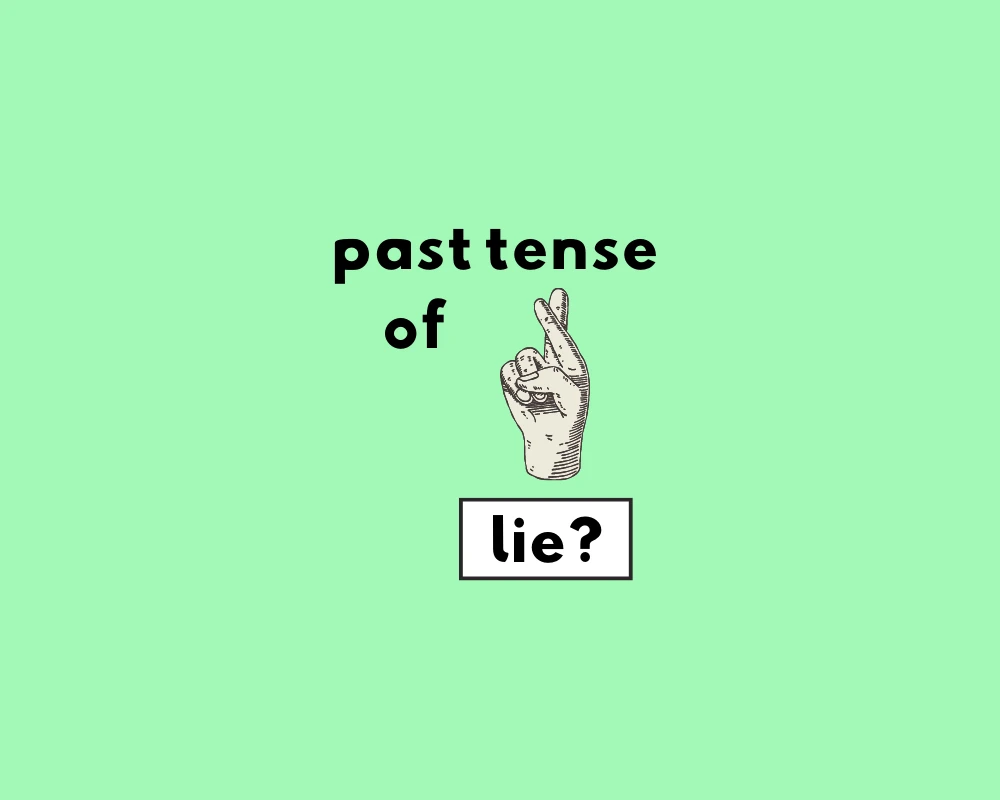Contents
Toggle
What’s the past tense of “lay”?
Did she lie down or lay down? Did she lie about lying down? Has she lied before? This pair of verb tenses sure is a befuddling grammar puzzle to solve: to lay down vs. lie down, which is correct?
“Lay down” or “lie down”?
First understand lie has two meanings as a verb:
1. To lie can refer to someone telling an untruth or false statement. For example, ‘I wouldn’t believe anything she says—she lies all the time.’ The past tense of this meaning of “lie” is lied.
2. Lie also means lie down, or “to assume a horizontal position—often used with down” (which is the sense in which we’re using the verb).
The sentence, ‘I’m going to go lie down for a nap‘ is correct English.
- The past tense of lie is lay, and the past participle is lain.
Here’s the tricky part:
- Lay is also the present tense of the transitive verb meaning to put or place something down (on something). E.g., “we lay down the cement first“.
- The past tense and past participle of lay is laid: ‘She had laid her books on the table before walking over to us‘.
The key difference is that to lie down is intransitive (i.e., it does not use a sentence object). A way to think about the difference is that the action stops and ends with the actor or doer itself: sleeping, for example, is intransitive: sleep is a state of being that begins and ends with us, rather than being done or received by someone or something.
To lie is in the present tense: I lie on the couch and watch TV every evening.
Lay is the simple past: The cat lay on the windowsill, basking in the sunlight.
Lain is the past participle: Having lain awake all night, she felt exhausted the next morning.
Examples of the present tense lie in sentences
I lie on the couch and watch TV every evening.
The cat likes to lie in the sun to stay warm.
The book lies open on the desk, waiting to be read.
He lies on the bed, feeling exhausted after a long day.
The keys lie next to the door; don’t forget to pick them up.
Examples of the past tense lay in sentences
Yesterday, I lay in bed for an extra hour before getting up.
She lay down on the grass and closed her eyes, enjoying the warm sun.
The cat lay on the windowsill, basking in the sunlight.
They lay their bags on the floor and looked around the room.
When I arrived, the book lay open on the table, forgotten by its reader.
Examples of the past participle lain in sentences
He had lain on the beach all day, soaking up the sun.
The picnic blanket had lain undisturbed in the grass since morning.
By the time we arrived, the patient had already lain in bed for hours.
The forgotten treasure had lain buried deep underground for centuries.
Having lain awake all night, she felt exhausted the next morning.
The etymology of lie
From etymology online on lie (v.):
“Speak falsely, tell an untruth for the purpose of misleading,” Middle English lien, from Old English legan, ligan, earlier leogan “deceive, belie, betray”. And “rest horizontally, be in a recumbent position,” Middle English lien, from Old English licgan “be situated, have a specific position; remain; be at rest, lie down,” from Proto-Germanic *legjan
Sources
- Harper, Douglas. “Etymology of lie.” Online Etymology Dictionary, https://www.etymonline.com/word/lie. Accessed 24 July, 2023.










